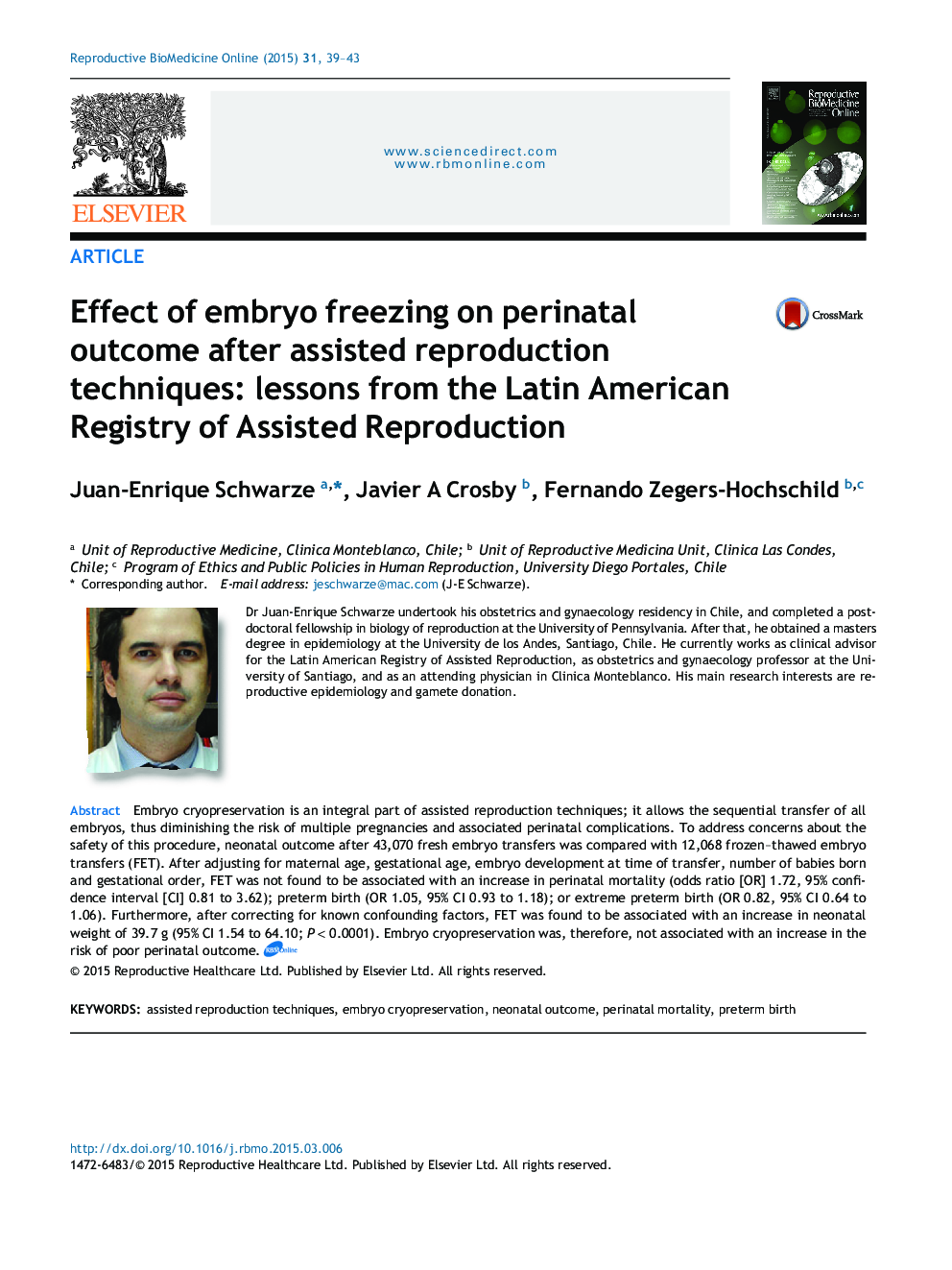| Article ID | Journal | Published Year | Pages | File Type |
|---|---|---|---|---|
| 6188808 | Reproductive BioMedicine Online | 2015 | 5 Pages |
Abstract
Embryo cryopreservation is an integral part of assisted reproduction techniques; it allows the sequential transfer of all embryos, thus diminishing the risk of multiple pregnancies and associated perinatal complications. To address concerns about the safety of this procedure, neonatal outcome after 43,070 fresh embryo transfers was compared with 12,068 frozen-thawed embryo transfers (FET). After adjusting for maternal age, gestational age, embryo development at time of transfer, number of babies born and gestational order, FET was not found to be associated with an increase in perinatal mortality (odds ratio [OR] 1.72, 95% confidence interval [CI] 0.81 to 3.62); preterm birth (OR 1.05, 95% CI 0.93 to 1.18); or extreme preterm birth (OR 0.82, 95% CI 0.64 to 1.06). Furthermore, after correcting for known confounding factors, FET was found to be associated with an increase in neonatal weight of 39.7âg (95% CI 1.54 to 64.10; P < 0.0001). Embryo cryopreservation was, therefore, not associated with an increase in the risk of poor perinatal outcome.
Keywords
Related Topics
Health Sciences
Medicine and Dentistry
Obstetrics, Gynecology and Women's Health
Authors
Juan-Enrique Schwarze, Javier A. Crosby, Fernando Zegers-Hochschild,
